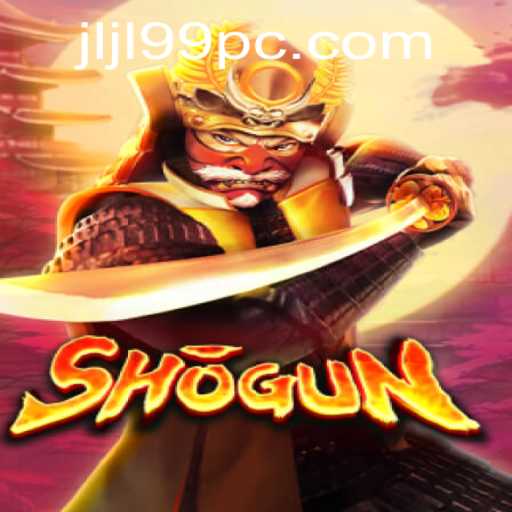Shogun: A Deep Dive into the World of Strategic Conquest
In the ever-expanding universe of board games, Shogun stands out as a testament to strategy and historical immersion. Known for its intricate gameplay and deep historical roots, Shogun takes players on a journey through feudal Japan, where calculated strategies and tactical brilliance hold the key to victory. As we delve into the complexities of this game, we also examine how it resonates with contemporary gaming trends and events.lol646
The Historical Essence of Shogun
Shogun transports its players back to the turbulent era of feudal Japan, a time marked by internal strife and warring factions vying for supremacy. The game is set during the Sengoku period, a chapter in Japanese history characterized by social upheaval, political intrigue, and military conflict. In this game, players assume the roles of daimyos, powerful territorial lords, who must navigate the ever-shifting alliances and betrayals to become the ultimate shogun.
With its detailed map, Shogun provides a rich tapestry of historical elements. The game not only tests strategic prowess but also offers a glimpse into the cultural and political climate of the period. Players must balance military conquest with political negotiations, making every move a crucial step towards achieving dominance.
Introduction to Shogun
Shogun, designed by Dirk Henn, is a strategic board game for three to five players. Released in 2006, it quickly became a favorite among strategy enthusiasts. The game combines elements of area control, resource management, and combat simulation, making it a multifaceted experience that challenges players on multiple fronts.
Each game session unfolds over a series of rounds, representing years in the historical timeline. Players must manage their territories, deploy armies, and develop infrastructure while anticipating the moves of their rivals. The game's strategic depth and replayability have cemented its place in the annals of beloved board games, attracting a dedicated following across the globe.ph333
Gameplay Mechanics and Strategies
Understanding the intricacies of Shogun's mechanics is essential for mastering the game. Each round consists of several phases, starting with the planning phase where players secretly decide their actions. This is followed by battles and resolution phases, where the outcomes of strategic decisions are revealed.
One of the game's unique features is the use of a cube tower to resolve battles. Unlike traditional dice-based combat, the cube tower adds an element of unpredictability, reflecting the chaotic nature of warfare. Players must carefully consider which armies to send into battle, as the cube tower can produce unexpected results that alter the course of the game.
Resource management plays a crucial role in Shogun. Players must ensure their provinces produce enough resources to fund military expansions and sustain their populations. Balancing the acquisition and maintenance of resources against aggressive expansion is a strategic tightrope that players must walk to achieve victory.vvjl
Diplomacy is another critical aspect of Shogun. Forming alliances and negotiating with other players can provide tactical advantages and open new paths to victory. However, alliances in Shogun are often fragile, and players must be prepared for sudden betrayals and shifts in power dynamics.peso888
Shogun in the Context of Modern Gaming
In recent years, the world of board games has undergone a significant transformation. The rise of digital gaming platforms and the growing popularity of online multiplayer experiences have brought new dynamics to the gaming community. Amidst these changes, Shogun has retained its appeal by providing a tactile and immersive experience that contrasts with the digital realm.
The game's emphasis on strategic thinking and historical immersion continues to resonate with players seeking a more thoughtful and deliberate gaming experience. Shogun champions the concept of face-to-face interaction, offering a social component that is often absent in digital games. The shared experience of planning, negotiating, and competing around a physical game board fosters camaraderie and engagement among players.
Moreover, Shogun's historical theme provides an educational aspect that appeals to history enthusiasts and casual gamers alike. As players navigate the complexities of the Sengoku period, they gain insights into the cultural and political nuances of feudal Japan, enriching their understanding of this pivotal era.
Current Trends and Shogun's Resurgence
Amidst the current landscape of board games, Shogun has experienced a resurgence in popularity. The growing interest in thematic and educational games has led new generations of players to discover and embrace its rich narrative and strategic depth. The game has also benefited from an increasing appreciation for analog gameplay, as players seek alternatives to screen-based entertainment.
The global pandemic has further fueled interest in board games, as people have turned to indoor activities and hobbies. Shogun's ability to provide hours of strategic engagement and repeated playability has made it an ideal choice for families and gaming groups looking to explore new challenges together.jljl ph
As the board game industry continues to evolve, Shogun remains a staple in collections worldwide. Its blend of history, strategy, and social interaction ensure that it will remain a beloved classic for years to come, captivating new players and old alike with its timeless appeal.








